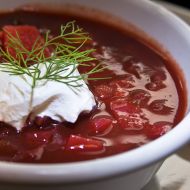Eat
Celebrating Jewish culture through food
Heirloom nourishment
Hidden within the food that we eat are incredible stories that can draw us back in time and to faraway places. Jewish culture has distinct traditional foods created from the produce available in many different parts of the world. Some food practices are passed on through family recipes and others are learnt more recently after migrating and rediscovering Jewish identity. Food is so much more than what is on our plates.
“I think the importance of food is that it really can connect you to your heritage. For me, to reproduce food, even if I tweak it in a more modern way, that my grandparents ate and their parents ate, what I feel I'm doing is I'm passing down not only the food to my children, but a history and the stories that go with it about their ancestors.”
Natanya Gross, Australian born; her father Morris Eskin migrated from China in 1954
Local cuisine
With the waves of Jewish migration to the Waverley area, food traditions from across the globe informed the local food offering. As well as providing a taste of home, the preparation and the sale of food provided important employment opportunities and social connections for the Jewish community. In keeping with culinary traditions, kosher shops including butchers, bakeries and restaurants opened in the local area in order to support Jewish residents in the Eastern Suburbs.
“When I came to Australia, the food that we wanted to cook was difficult to find. Things like sour cream. We went to grocery shop and we asked for sour cream and they said why would you sour the cream? We asked for olive oil and they sent us to the pharmacy. Because olive oil is not something they used.”
Peter Halasz, migrated from Hungary in 1957
You are what you eat
For many migrants food reflected the significant changes that took place after moving to Australia. Migration patterns in the 20th century came about at a time when changes to the production and distribution of food made it more possible than ever to enjoy food from across the globe. These large scale changes are reflected in the small scale in our cupboards at home and in the quality and variety of restaurant options in the area.
"They [my parents] knew that we were slowly, gradually becoming Australian children, [food] was their way of maintaining that connection with our ancient traditions and histories. The food remained very, very Soviet. Then in time, it also became more Jewish… matzah ball soup suddenly appeared on the table. We would have Seders to celebrate the Passover, something which was unimaginable in the Soviet Union."





















